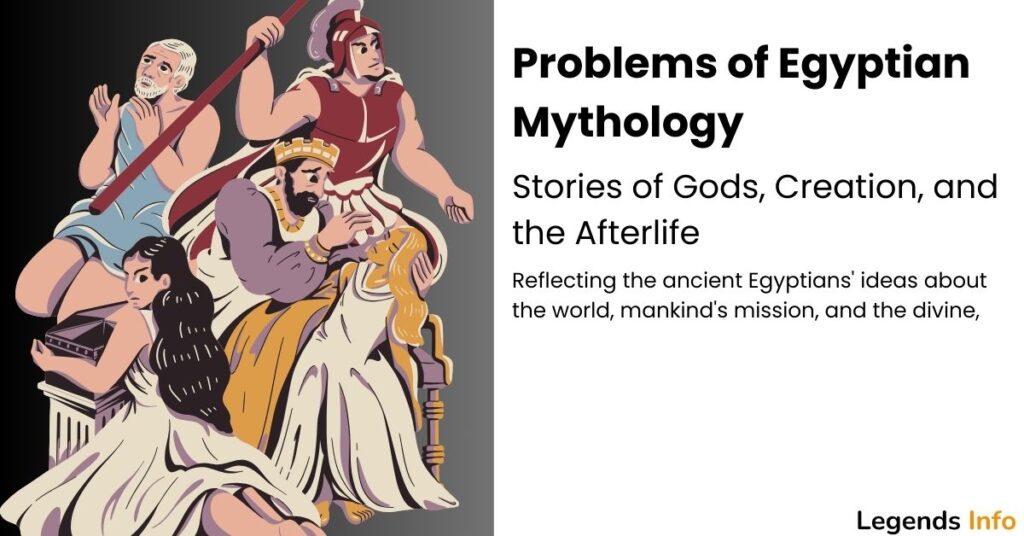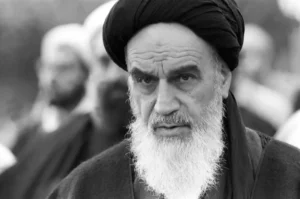Table of Contents
ToggleAn Introduction
Reflecting the ancient Egyptians’ ideas about the world, mankind’s mission, and the divine, Egyptian mythology creates a gripping narrative of gods, monarchs, and the afterlife. Stories from the Nile’s banks have sparked wonder for millennia by narrating the travels of gods like Ra, Osiris, and Isis. This page explores some of the most well-known Egyptian myths, their cultural relevance, and how these old tales still speak to us.
Important Egyptian Stories and Their Interpretive Value

The Creation Legend
Egyptian mythology tells the tale of creation, starting with the god Atum rising from the turbulent waters of Nun. By volition, he generates the first gods, Shu (god of air) and Tefnut (goddess of moisture), who then conceive Geb (god of the ground) and Nut (goddess of the sky). Reflecting the Egyptians’ conviction in the harmonic wholeness of the universe, this cosmic family stands for the balance of natural components.
The Odyssey of Osiris and Isis
The myth of Osiris, the god of the afterlife, and his wife, Isis, is among the most well-known in Egyptian mythology. Legend holds that Set, Osiris’s brother, deceived him and killed him, distributing his body around Egypt. In her love and allegiance, Isis sought the fragments and rebuilt Osiris, therefore restoring his life. Becoming the basis of Egyptian religious belief, this narrative represents ideas of rebirth, eternal love, and the victory of good over evil.
Ra’s Trip in the Underworld
Considered among the most potent gods in Egyptian mythology, Ra is the sun. Every night, he travels the underworld, fighting the serpent Apophis to guarantee the sun’s rise at dawn. Reflecting the Egyptians’ daily experience of night and day and their conviction in perpetual cycles, this cycle stands for regeneration and the triumph of order over anarchy.
Heart Weighing
According to Egyptian ideas of the afterlife, the weighing of the heart is a crucial event whereby the heart of a dead person is balanced against the feather of Ma’at, the goddess of truth. Should the heart be smaller than the feather, the soul might enter the next world; if not, the monster Ammit devours it. This story emphasizes the need to lead a fair and balanced life in line with Ma’at’s ideas, therefore matching one’s activities with cosmic order.
Egyptian Mythology Symbols and Themes
From the scarab, which signifies rebirth, to the ankh, which signifies life, Egyptian mythology is abounding with symbolism. Reflecting the Egyptians’ emphasis on harmony and the infinite cycles of life and death, themes of resurrection, balance, and the entwined interaction between gods and mortals abound.
Modern Relevance and Cultural Influence
Egyptian mythology leaves a legacy even beyond ancient times. From ancient inscriptions to massive pyramids, art and architecture captured these tales. Egyptian stories still inspire modern writers, movies, and even video games as they investigate ideas of life after death, divine intervention, and the search for truth.
FAQs Regarding Egyptian Mythology
What lessons regarding Egyptian values may the tale of Osiris and Isis impart?
The tale of Osiris and Isis reflects the Egyptians’ perspective of the afterlife as a continuation rather than a destination. It stresses devotion, love, and the ongoing power of life beyond death.
Why did the heart weigh so much?
The heart weight represented the conviction in moral integrity, truth, and justice. It underlines how important ethical living and spiritual cleanliness are to the Egyptians as means of a pleasant death.
In daily Egyptian life, what part did Ra serve?
Rising as the sun god, Ra was fundamental in Egyptian life because he represented creation, protection, and the cyclical character of life. His trip to the dark side symbolized optimism and the victory of discipline.
Final Thought
Egyptian mythology still fascinates and instructs with its ageless tales and metaphorical connotations. Using mythologies of gods and heroes, these old stories provide a window into a society that aimed for equilibrium, respected the hereafter, and acknowledged the natural rhythms. Discovering important new perspectives on human values and beliefs as we examine these tales helps us to make Egyptian mythology as relevant and fascinating now as it was thousands of years ago.

